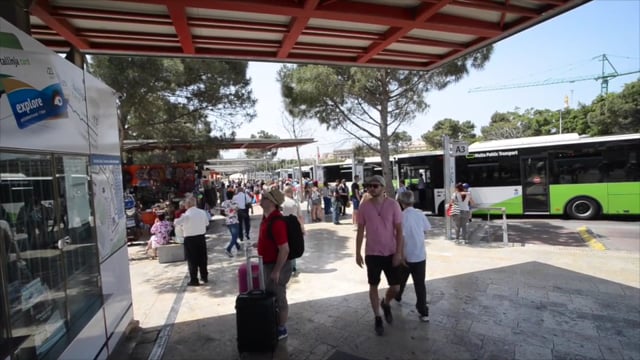[WATCH] New collective agreement for bus drivers, MPT employees includes salary increases
UHM, Malta Public Transport says collective agreement will also give employees better work-life balance


A new collective agreement for Malta Public Transport employees has been signed between the Union Haddiema Maghqudin and the MPT, which should ensure better working conditions for the company’s workers.
The agreement covers 1,000 bus drivers and 300 other workers engaged in maintenance and other sections.
Among the changes, the agreement ensures immediate increases in the salaries of all employees, guaranteed salary increases after five years, increases in night allowances, as well as shorter duties and breaks.
MPT general manager Konrad Pule said that the agreement was a first, given that it covered all employees of the company.
“This agreement is about benefits to our team, and ultimately it will also improve the service offered to our clients,” Pule said.
The agreement also seeks to create a better working environment by tackling shifts and length of duties and breaks among others.
“The aim is to have more realistic duties, shifts and breaks,” Pule said, adding that the company also planned on creating more training programmes for employees.
Pule explained that the company was investing a total of €4 million investment in salary increases and other initiatives outlined in the agreement.
UHM chief executive Josef Vella said the agreement was a solid foundation to pursue further development and improve the conditions of the workers. In turn, he added, this will result in a better service to clients.
“Better conditions mean better attitudes to work and ultimately a better product for customers,” Vella said. “Negotiations were carried out in a short period of time.”
Speaking to MaltaToday, Vella said that the UHM was very proud of its achievement in creating this collective agreement, but that it would not hang up its laurels following this development.
“The agreement is not the final development we will see in the sector but it provides a solid foundation to build upon for mutual benefits to workers and society in general,” Vella said, adding that the UHM would be following up to ensure that the changes have a concrete effect on employees.
Asked about complaints by the public about the quality of service offered by some drivers, Vella said that he hoped the changes would lead to more job satisfaction and motivation.
“Many employees already offer service with a smile, and are eager to serve their duties, but we hope the agreement will increase the incidence of this kind of service,” he said.
Vella also explained that some of the changes would target the type of training given to employees, regardless of their nationality.
“Training in customer service, maintenance and languages for foreign employees, will be increased to respond to demands made by the public, and we hope that this will lead to an overall improvement of the service offered.”
The UHM said the agreement was also “a message” to other organisations that results can be achieved without industrial actions. “Professionalism and dialogue is the basis for results achieved.”
Members of the UHM and Malta Public Transport then followed up the press conference by visiting some of the bus drivers on duty at the Valletta terminus. Although they were approached by the newsroom to comment about the situation, most of the bus drivers were reluctant to speak up. A few of them remarked that they welcomed some of the changes suggested, including the increase in salaries.
“Our job entails quite some responsibility, so I think our pays should reflect that as much as possible,” one driver who has worked in public transport for over 20 years told the newsroom.
“Many of us do not enjoy the recognition we deserve for the years of service we’ve given,” he said, adding that issues like split shifts and unreasonably long shifts often proved demoralising to employees.


.png)



















